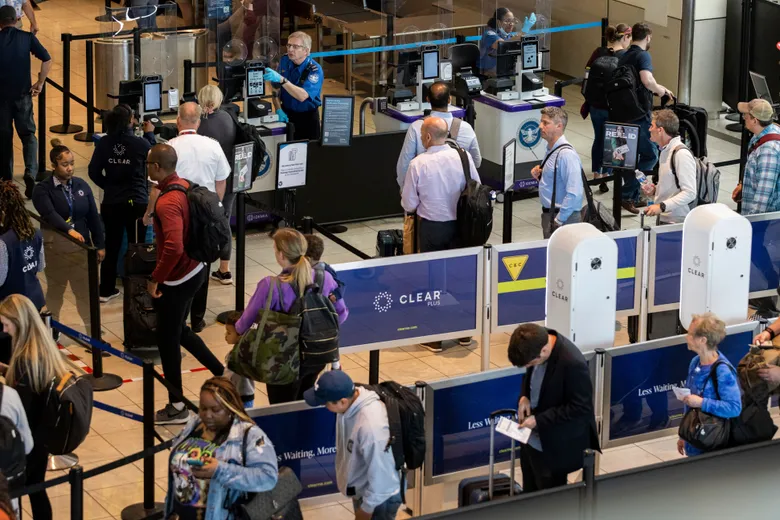The Transportation Security Administration has sparked a privacy controversy with its plans to install facial recognition technology at hundreds of airports across the country.
The technology, known as CAT-2 machines, is set to be used in more than 400 U.S. airports, according to the TSA website, and is designed to improve traveler convenience.
The new CAT-2 machines will be used as travelers enter the screening process. Under the new approach, travelers can “voluntarily agree” to allow their face to be used to verify their identity during security screening by presenting their physical identification or passport. The facial recognition technology will then be employed to “help ensure the person standing at the checkpoint is the same person pictured on the identification document,” according to TSA.
Photos will not be stored or saved after a positive ID match has been made “except in a limited testing environment for evaluation of the effectiveness of the technology,” the agency website explains.
Additionally, travelers who do not want to participate in the facial recognition technology process can decline to allow its use and instead participate in alternative identity verification that involves a manual ID check by a TSA agent.
Opting for the manual ID review should not extend the time it takes a traveler to complete the security process, per TSA. And those who request alternative screening will not lose their place in the security screening line.
TSA’s facial recognition units are currently deployed at nearly 30 airports nationwide and will expand to additional airports over the coming years.
“Identity verification is an essential element of…[a] risk-based approach to transportation security,” the agency website states. “TSA strives to enhance security effectiveness and improve operational efficiency while creating an enhanced traveler experience and strengthening privacy.”
A TSA spokesperson told the New York Post “It may take until 2030 or 2040 that we can be fully operational with this technology.”
Not everyone, however, is happy about the rollout of CAT-2 units. Some lawmakers have criticized the use of facial recognition technology, based on privacy concerns.
“The TSA program is a precursor to a full-blown national surveillance state,” Sen. Jeff Merkley, (D-OR) said in a statement. “Nothing could be more damaging to our national values of privacy and freedom. No government should be trusted with this power.”
Merkley is part of a coalition of senators that has expressed concerns. Additional members of the coalition include John Kennedy (R-LA), Edward J. Markey (D-MA), Roger Marshall (R-KS), Bernie Sanders (I-VT), and Elizabeth Warren (D-MA).
In a statement provided to TravelPulse by TSA, the agency said: “Following successful assessments with the DHS Science and Technology Directorate in strict accordance with National Institute of Standards and Technology (NIST) standards, TSA is in the early stages of deploying its facial recognition capability to airport security checkpoints.”
The agency spokesperson added that “the technology provides a significant security enhancement, given that identity verification is a lynchpin in transportation security. It also facilitates improved passenger experience by enabling traveler use of mobile driver’s licenses.”
In a statement provided to the New York Post, a TSA spokesman underscored that travelers can opt out of facial recognition technology and instead proceed with alternative checkpoint screening. (https://www.travelpulse.com/news/airlines-airports/new-tsa-facial-recognition-systems-at-airports-raise-privacy-concerns)





































